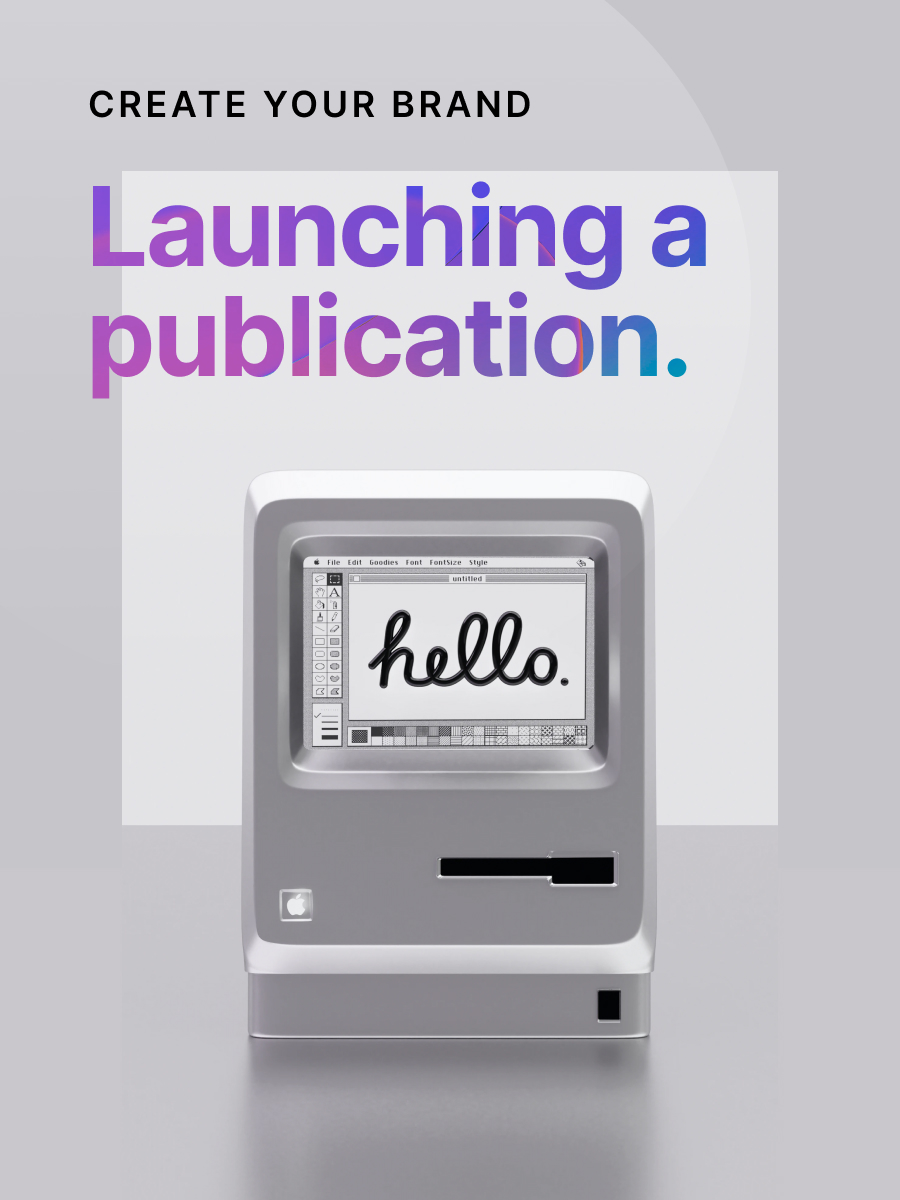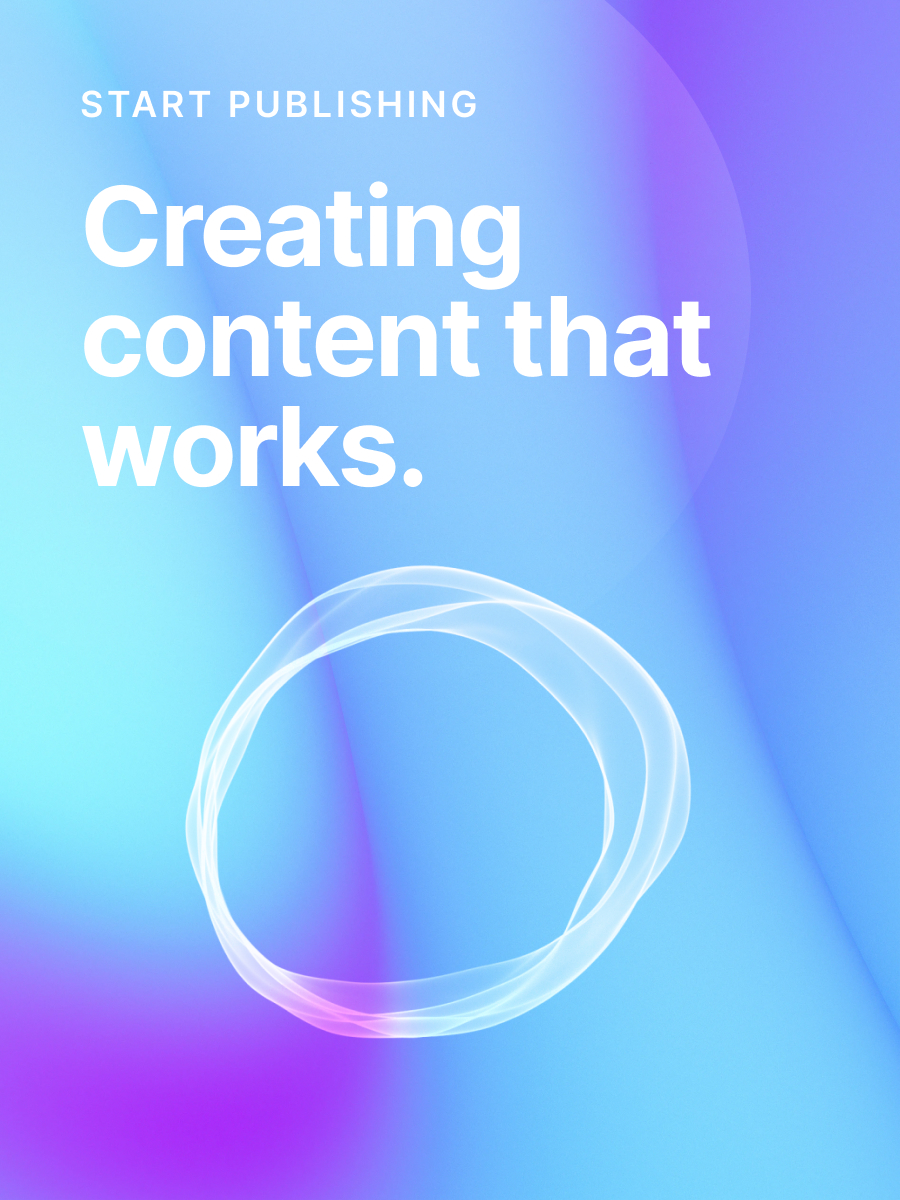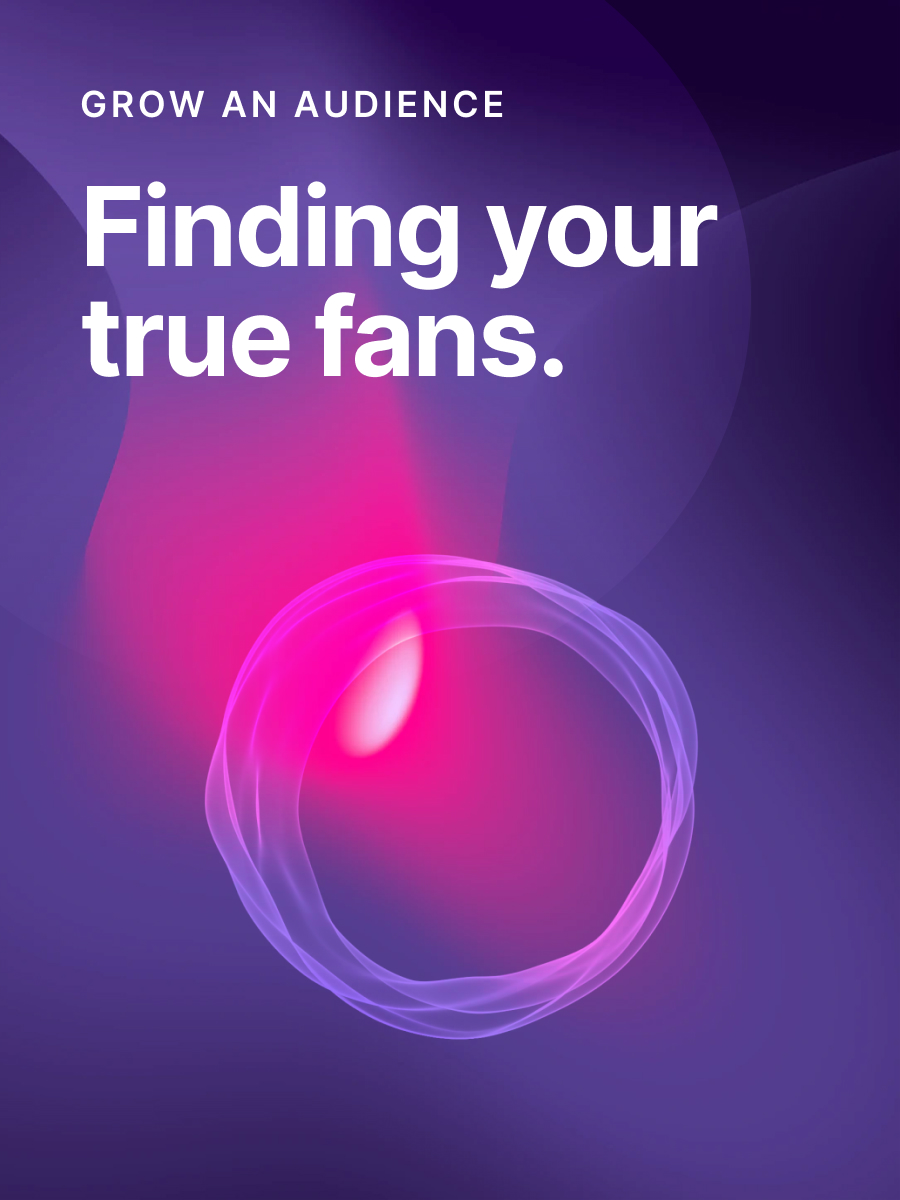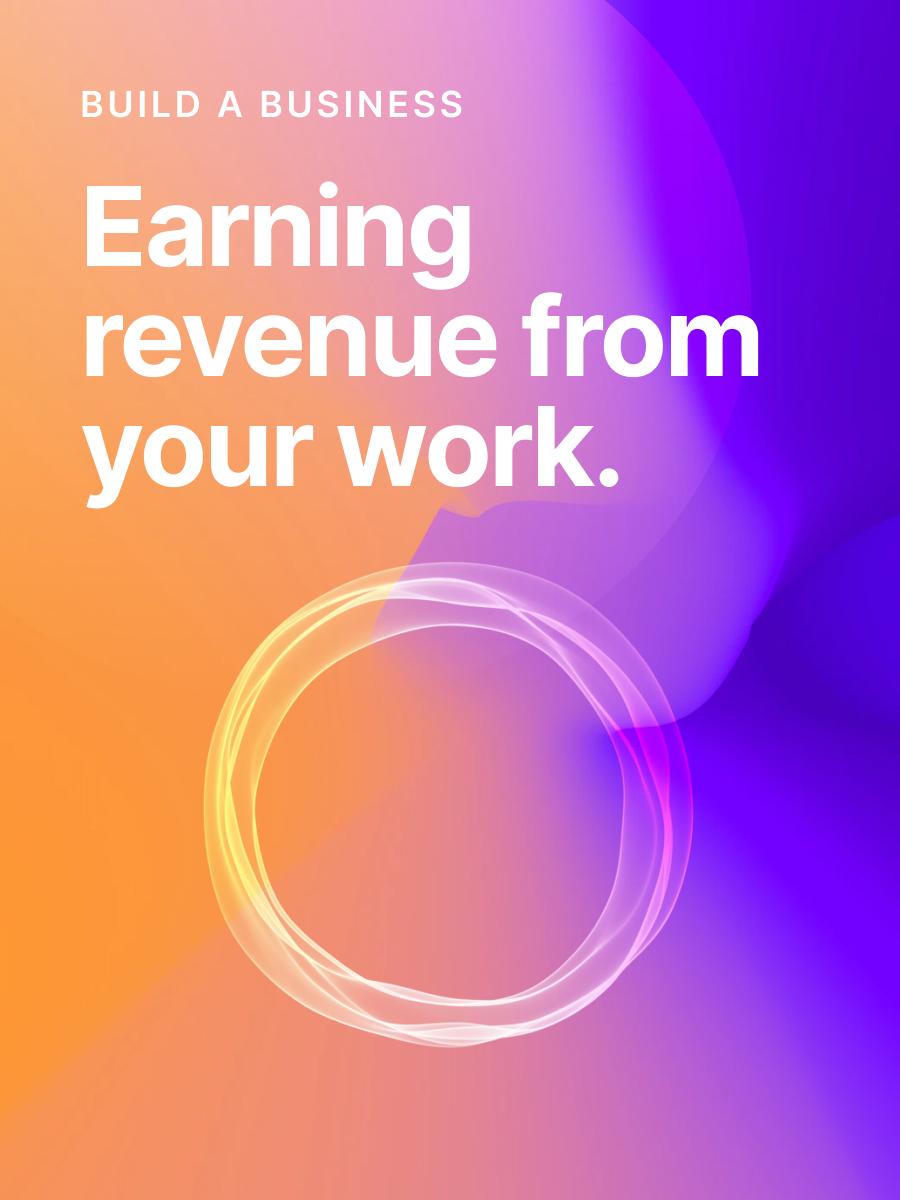#159 — Why publishers should challenge their industry assumptions
In this issue of Publisher Weekly, learn how to build trust with your audience, discover the AI research tool of the future, and see how pop-up newsletters might work for you.
Want to get featured below? Submit an article.
Assumptions suffocate creativity. There is something to be said for learning from the leaders in any field, especially publishing. However, it would be misguided to conclude that the way they do it is how it must be done. This week's issue provides a collection of resources to help you challenge the assumptions which could be stifling growth.
💯 Top picks
The strategy successful creators use to build trust with customers
Before a customer takes any action, such as subscribing to a newsletter or buying a product, they look for reasons why they should trust you.
The latest post on the Ghost blog details four steps every creator must go through in order to build a lasting relationship with their audience. These include leveraging authenticity, sharing social proof, and adopting an "infinite game" mindset.
The content writing guide: How to write blog posts that readers care about
Animalz, a content marketing agency, released a comprehensive guide to publishing effective blog posts. The guide compiles nine topical resources covering every step of the content process, from gathering ideas to forming an outline to closing with a strong conclusion.
💸 Business models
Community foundation support for journalism is increasing — but still has a long way to go
This new report showed philanthropic giving to journalism quadrupled between 2009 and 2019.
There's been a dramatic increase in grants aimed at helping writers with publications that can improve a community. In the past, most of these dollars have gone towards national initiatives. However, with the recent resurgence of local news and stories, the attention has shifted towards this space. If you run a local or community-oriented publication, this funding source may be of interest to you.
Publisher CPM rates higher for visitors providing consent
A study published by Ad Exchanger revealed that publishers who follow privacy laws and prompt users to agree to their guidelines see higher ad rates as a result. The study centered around General Data Protection Regulation (GDPR) laws, but also highlights a trend across the publishing space. For publishers who monetize through ad revenue, this is a worthwhile read.
Substack to offer free classes to help writers earn their first $1,000
Kaya Yurieff of The Information reports that Substack will be launching a new program called Substack Grow that "offers a free, six-session course over Zoom to help writers." No more information has been made available as to when the program will start or who will be able to take part.
📝 Modern publishing
From curation to originals
What is something completely original you could create that sets you apart from other curators in your same niche?
A thoughtful article by A Media Operator argues for how curators could benefit from adding original content to their mix. Laced through the piece is the analogy of a grocery store. Their purpose is to curate products from a mix of brands. However, the majority of large grocery chains eventually pivot towards producing their own goods which can have tremendous financial upside. In the same way, curators should think of their original content as a compliment, not a replacement, to what they do.
Sorry publishers, but your digital products suck
In this opinionated piece, Monday Notes author Frederic Filloux explains the reasons why most news websites and mobile apps are a pain for users. Some of the stated reasons include complicated login processes, inaccurate search tools, and a lack of personalization options. It's an important reminder that even great content can suffer when paired with a bad tool.
Related: Influencers lead news debates on social networks, leaving journalists in the shade — Journalism.co.uk
Magazine publishers’ hidden treasure trove: Digital back issues
Journalist Jez Walters highlights a growing trend of publishers curating back issues into new collections for additional revenue. The strategy behind the concept is ingenious, as it allows publishers to refocus a portion of their attention from the ever-spinning wheel of new content towards a more sustainable process.
📬 Email newsletters
Pop-up Newsletters
Burnout happens from having bitten off too much of an undefined thing.
Craig Mod offers a refreshing take on how writers can set themselves up for success and avoid burnout: think in seasons. Most publishers begin projects with no end date in mind. Granted, the majority of newsletter products are perpetual. But they don't have to be. Mod offers a number of examples of how seasonal publications can work, both creatively and financially, for aspiring creators.
10 fill-in-the-blank headlines you can use to create effective content
Every audience and niche is unique. But, much of what they value is the same.
Josh Spector delivers ten title templates writers can use to drive interest to their content. These are useful because they focus on the specific value each article provides to the reader, rather than aiming to produce the most clickable heading, regardless of its accuracy.
Related: The four things that define a good newsletter — One Man & His Blog
Reaching the milestone of 1000 newsletter subscribers - Here is what I have learned
My most important takeaway is that you should never write for numbers.
Philipp Temmel shares a collection of insights they acquired while growing their newsletter Creativerly to over one thousand readers. The article contains tried-and-true advice, such as remaining consistent and focusing on the quality of your content at first. One particularly useful detail is that Temmel experienced greater growth as they became more comfortable sharing personal details and stories. There is no better growth hack than genuine connection.
There are 4 kinds of keyword research: Make sure you’re doing the right one(s)
Depending on the traffic strategy for your newsletter or publication, keyword research may be a standard part of your process. However, this resource does a good job of explaining the nuances of how the practice works across different platforms and for various goals. The four kinds they identify are SEO/PPC, social media marketing, content creation, and market research.
💻 Technology
Text-reading AI will do your research for you
Primer, a startup building natural language processing (NLP) engines, is starting to offer its technology to businesses. The AI solution will be able to summarize long text, locate key concepts, identify patterns, figures, and structures that human readers might miss. Although this tool is in the very early stages of its development, similar services for smaller publishers may not be too far off in the future.
At first, Facebook was happy that I and other journalists were finding its tool useful…but the mood shifted
CrowdTangle is a data analytics tool from Facebook that allows publishers and journalists to search for and identify trends occurring on the platform. Its original purpose was to encourage data transparency. However, journalists began sharing concerning insights from the tool, such as the high rate of misinformation or the preferential treatment of certain publishers. Now, Facebook is considering revoking the tool or limiting what information is publicly available. This story is a reminder that data can, and often does, equal power.
Related: Is the future of journalism work experience virtual? — Journalism.co.uk
Is social media making us … better people?
Laurence Scott of Wired discusses a well-worn subject in a new light: what information should be shared online and how? Scott's insights revolve around "warning" labels and trigger warnings that preface posts across the internet. Similarly, some services, like Twitter, have begun issuing prompts to users writing erroneous or insulting replies. Perhaps as humans become more used to digital communication, a new series of social conventions and technological safeguards will arise to make it better.
❤️ Enjoy this newsletter?
Forward to a friend and let them know where they can subscribe (hint: it's here).
Wanna get featured? Submit a story for us to include.
Anything else? Hit reply to send us feedback or say hello.
Join the invite-only community! Connect with like-minded people who create content professionally. Fill out this form to get on the list!






